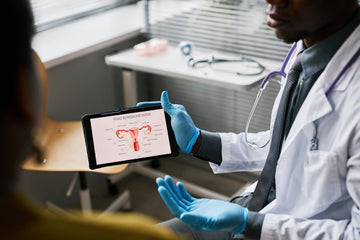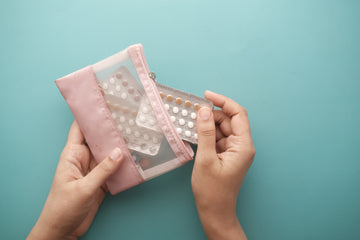
Did you know that every year on November 2nd, we celebrate World Fertility Day? You might be wondering why we need a separate day dedicated to fertility, but the numbers speak for themselves. According to the World Health Organization (WHO), over 186 million people worldwide are affected by infertility. That's a staggering figure! And did you know that 15% of couples will struggle with conceiving in the United States? It's important to raise awareness about these statistics and support those who are struggling with fertility.
How is infertility defined?
Did you know that the WHO has defined infertility as a woman being unable to conceive after 1 year of regular, unprotected sexual intercourse at optimal times, up to the age of 35? For women over 35, this applies after just 6 months. Infertility can have a variety of causes, and while male infertility can often be diagnosed through a sperm analysis, female infertility is much more complex. LEVY Health screens women for over 65 potential diagnoses when there is a suspicion of infertility. It's important to understand the complexity of infertility and to seek out the appropriate medical care to address it.
Why reproductive health is so important.
Did you know that female fertility is incredibly complex? It can take years for common diseases that affect a woman's fertility, such as endometriosis or PCOS, to be properly diagnosed. Shockingly, even though 1 in 10 women are living with endometriosis, it takes an average of 7 years to receive an accurate diagnosis. Unfortunately, women's health, especially infertility, is still a taboo topic and highly stigmatized. However, infertility can be a symptom of hormonal imbalances and chronic diseases, making it an important marker of a woman's overall health. That's why it's crucial for women and girls to prioritize their reproductive health early on. By seeking appropriate medical care and breaking down the stigma surrounding infertility, we can work towards better reproductive health outcomes for all women.
Knowing your fertile window is the first step towards gaining a better understanding of your fertility.
Did you know that getting to know and observing your menstrual cycle is an important first step to understanding your fertility? A normal menstrual cycle can last anywhere between 21-35 days, with the first day of your period marking the start of a new cycle. But did you know that there are only six days within your cycle where it's possible to get pregnant? This is known as the fertile window.
Sperm can live in your reproductive tract for up to five days, while an egg can only be fertilized for less than 24 hours after it's been ovulated. That means that the five days leading up to ovulation and the day of ovulation itself make up your fertile window. Fertility peaks right around ovulation, with the two days before ovulation and the day of ovulation being your most fertile days. There are numerous innovative methods for determining the fertile window, in addition to traditional ovulation tests. Understanding your cycle and the fertile window is an important first step, especially if you're trying to conceive. With the correct diagnosis, you can gain further clarity on your path to parenthood.
Receiving the correct diagnosis can provide much-needed clarity for women and couples who are trying to conceive.
Did you know that every woman and couple should have the freedom to decide if and when they want to have children? Unfortunately, those struggling with infertility often feel like this choice has been taken away from them. But at LEVY Health, we want to empower women and couples to take control of their fertility. That's why we've developed the LEVY Fertility Code, which provides a comprehensive fertility analysis that includes individual diagnoses and therapy recommendations.
How the LEVY Fertility Code works.
Step 1: Sign up.
Get started by signing up and creating your free LEVY Health profile.
Step 2: Complete a comprehensive Reproductive Health Assessment.
Answer in-depth questions about your medical history using our smart online questionnaire. You can do this from the comfort of your own home or with your clinician at their office.
Step 3: Personalized biomarker recommendations.
Based on your risk profile, we recommend a personalized set of biomarkers for testing.
Step 4: Blood test.
Visit one of LEVY Health’s partner laboratories to have your blood drawn. No appointment is required.
Step 5: Diagnoses and recommendations.
With the support of LEVY Health, your doctor screens you for 65 medical conditions that can impact fertility and creates a personalized care plan for you.
Step 6: Your fertility at a glance.
Access your results, diagnoses, and recommendations anytime in your LEVY Health profile. You can also download them as a PDF for your doctor's appointment or any other purpose.

Not sure when your fertility window is? Join the femSense® community today to start ovulation tracking now!

LEVY Health provides a comprehensive and personalized approach to reproductive health. By completing a Reproductive Health Assessment and personalized biomarker recommendations, individuals can receive a diagnosis and care plan for up to 65 medical conditions that may impact fertility. With easy access to results, diagnoses and recommendations through the LEVY Health profile, users can stay informed about their fertility and take proactive steps toward their reproductive health.





